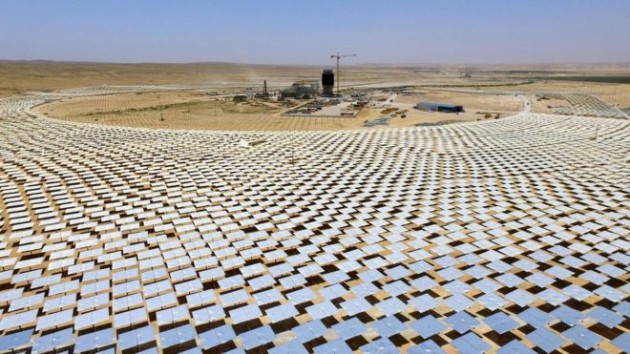Paris climate deal enters force as focus shifts to action
 Nov. 05: The Paris agreement on climate change has come into force. Governments have agreed to keep the global temperature rise to two degrees Celsius above pre-industrial levels – and preferably 1.5 degrees.
Nov. 05: The Paris agreement on climate change has come into force. Governments have agreed to keep the global temperature rise to two degrees Celsius above pre-industrial levels – and preferably 1.5 degrees.
“This is a moment to celebrate,” United Nations climate chief Patricia Espinosa told Reuters. “It is also a moment to look ahead with sober assessment and renewed will over the task ahead.”
The Eiffel Tower in Paris is expected to be lit up in green light on Friday to mark the entry into force of the historic climate pact.
Delegates from almost 200 countries are meeting in Marrakech next week to consider the way ahead beyond Paris.
The deal agreed in the French capital less than a year ago commits governments to moving their economies away from fossil fuels.
On Thursday, a UN review of national pledges to cut carbon said they fall short of the levels needed to keep the rise in global temperatures under 2C.
The report found pledges from governments that have ratified the accord would see the world on track for a rise in temperatures by the end of this century of between 2.9 and 3.4 degrees C.
The Paris climate pact comes into force less than a year since it was agreed. The last major climate deal – the Kyoto Protocol – took eight years to come into force. Paris is the first agreement tying rich and poor nations in a common endeavour to protect the climate. However, the national targets for cutting carbon emissions are voluntary. The UN tried a mandatory approach but countries that were failing to meet their targets simply quit.
The process of the Paris deal is binding, including a commitment for governments to keep returning to the issue to ratchet up the clean energy targets that they all agree are inadequate. Governments that rushed to enshrine Paris in law have had one eye on the US elections. Hilary Clinton has pledged to take President Obama’s emissions cuts further. Donald Trump wants to tear up the agreement.
Environmental groups and other experts have urged governments to do more.
World Bank group president Jim Yong Kim said even with the commitments made in Paris and encouraging action on the ground, “we will not meet our aspiration of limiting warming to 1.5 degrees unless we move faster and at the scale that is needed”.
“As the world heads into (the meeting) in Marrakesh, we must regain the sense of urgency we felt a year ago,” he said.
In Marrakech governments and parties will work on details of a “rulebook” which will measure and review global climate action.
What was agreed in Paris?
1. To peak greenhouse gas emissions as soon as possible and achieve a balance between sources and sinks of greenhouse gases in the second half of this century
2. To keep global temperature increase “well below” 2C (3.6F) and to pursue efforts to limit it to 1.5C
3. To review progress every five years
4. $100 billion a year in climate finance for developing countries by 2020, with a commitment to further finance in the future. bbc.com
